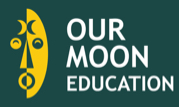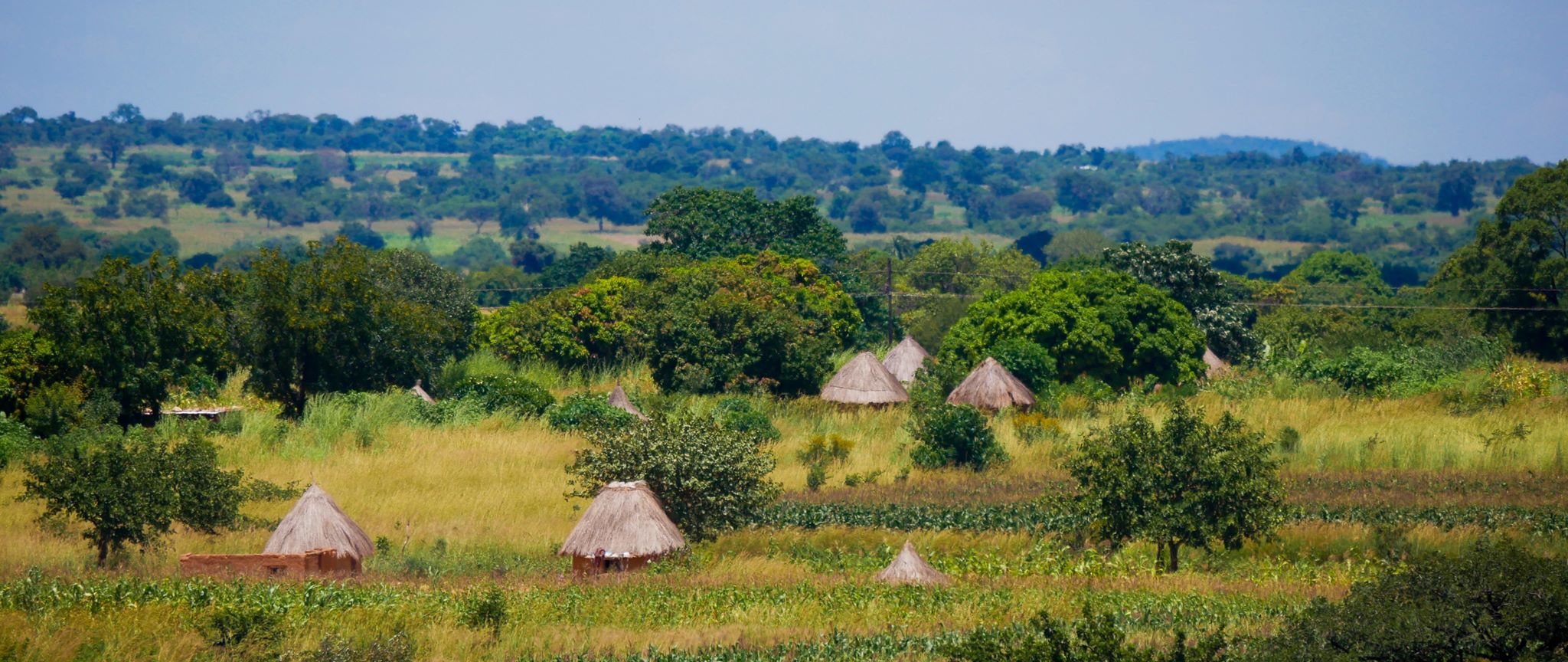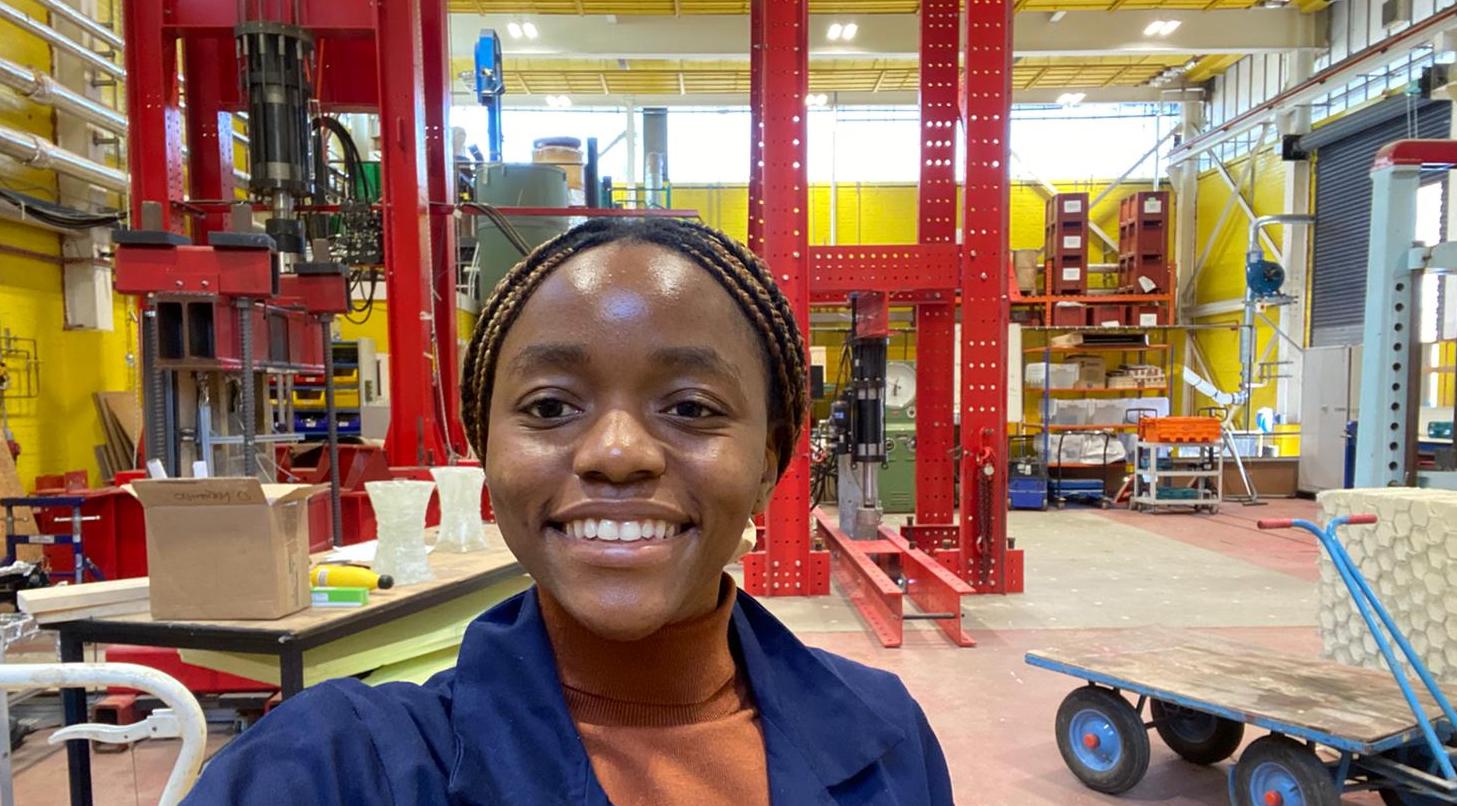Damaris Nzala finishes her blog series with an interview with Janet (Our Moon Scholar 2017-18) to celebrate her recently awarded Rhodes Scholarship. Janet will attend Oxford University where she will study for a DPhil in Civil Engineering.
As we continue to acknowledge and honour women around the world for the remarkable achievements and the contributions, we make to positively influence progression in our societies, it was an inspiring time to interview an Our Moon alum, Janet Both. Janet is a final year Civil Engineering student at the University of Edinburgh and she is also a Rhodes Scholar Elect. She shares in her interview, her journey as a high achieving female in science, technology, engineering and maths (STEM). As current scholars, our journey to Our Moon was inspired by the stories of different students and we are ever inspired by how Our Moon scholars continue to illuminate the world. I hope you too get inspired!
I would like to be known as someone who utilised and harnessed the resources that Zambia has and really improved the quality of life for the Zambian people, someone who pursued innovation and strove for sustainability.
D: What inspired you to join Our Moon?
J: When I was in high school at Hillcrest, Our Moon visited my school. From the talk that we had with Helen, I was inspired. She told me it was possible to achieve my dreams of pursuing quality higher education and that was a light bulb moment for me. Our Moon opened so many opportunities for me. Even up to now, Helen has been holding my hand in my career journey and helping me where she can. I was once an Our Moon scholar and I am still one; I do not think anyone ever stops being one.
D: How had it been for you as you were one of the few girls taking pure sciences in secondary school and how did that influence your choice to study Civil Engineering in university?
J: I went to a technical school and everyone at my school took pure sciences. At that time, it did not seem so foreign because everyone else around me was taking pure sciences, But there were optional technical subjects, such as Technical Drawing and Geometrical Drawing and there were only three girls taking those subjects. I was one of the three girls. This is where I first encountered the gap in STEM related subjects. Initially, I did not think it was an issue until I got into the class and realised that there is a lot that needs to be done to create an environment for both males and females to thrive. I encountered the biases associated with females in STEM. There were times I would be in a workshop and someone would just ask if I could manage.
Overall, however, I had an encouraging environment in the sense that everyone around me was pursuing the same thing. Not everyone is so lucky and there is definitely a lot that needs to be done to encourage more females. Even getting to university, the gap is still there. Taking STEM subjects helped me see civil engineering as a viable career option for me because before that, I was considering something not in the STEM field.
D: Getting to Edinburgh, what are some of the moments you have felt most inspired?
J: While at Edinburgh University, I had so many inspiring moments. I am passionate about getting more girls in STEM and I have had opportunities to attend student conferences and the recent one I attended was organised by the Women’s Engineering Society. I have never felt more inspired. There were so many women in diverse Engineering fields. I met a lady who works for Formula One racing and this inspired in me a unique perspective. Our idea of what Engineering or STEM in general is, can be so narrow, but it is vast. My perspective widened and I saw that they are so many women in those spaces and we can be more. That awareness encouraged me to continue pursuing my career in engineering and encouraging more females to take on careers in STEM.
I have had opportunities to attend student conferences and the recent one I attended was organised by the Women’s Engineering Society. I have never felt more inspired. There were so many women in diverse Engineering fields.
D: What are some of the major hurdles you have faced as a female in STEM and how have you overcome them?
J: There are so many challenges I have encountered especially in the first few years of entering a STEM field. Self-critique and the need to constantly prove oneself are some of the hurdles I have faced. When you are a woman in STEM, because you are aware of some of the biases, you do not just want to pass them. You, therefore, work so hard just to prove yourself but, I guess, in a way it can be a good thing simply because it forces you to put in the effort. I have also struggled with bringing my true self to a workplace. There is always a temptation to try and fit in; if I have a distinct perspective, I may be hesitant because it may seem controversial and because I know how biased people can be.
All these challenges have inspired growth in me; I have grown in self-awareness and I am just constantly reminding myself that I can only do my best. Looking at some of the group projects I did in first year and some of the projects I am doing now, I can see a difference in how I carry myself and how I communicate and bring out my ideas.
D: Tell us about your summer project last year.
J: I did two projects last year alongside my internship. I will share one where I took part in a competition sponsored by Bentley Education in the US. Each year, they have a competition where students produce projects. My project was on how we can upgrade slums/shanty compounds in developing countries by giving people affordable housing using recycled plastic bricks. The idea was promoting sustainability and addressing the challenge of poor housing. More people are going to live in the cities and the gap between those in the lower income bracket and those in the upper income brackets is increasing. There are still too many people in slums. My project was how we can meet people where they are; instead of only providing fancy houses with high-cost materials, we can use something as affordable as recycled plastic brick and let people live in stable houses and safe communities.
D: Share a bit about your experience while applying for the Rhodes scholarship and how it is now that you are in?
J: It was an interesting journey. It seemed so unattainable, like it was reserved for “really expectational people.” At first, I was apprehensive about applying and I spoke to Helen about it and she was like, “Absolutely go for it!” I spoke to another African scholar from Kenya who got the Rhodes scholarship as well as one of Helen’s alumni who both graduated last year. They both encouraged me to apply for the scholarship. And it seemed like everyone else believed in me more than I did!
Most people who have gone through the application process say it is worth it, regardless of the outcome. Just the style of the application, the essays, the interview, I have never had to reflect on my interests that much. I really had to think about who I am, what matters to me and how I would like to make an impact. It was definitely a community effort; I reached out to many people throughout the application process. It was a challenging experience, but I really learnt so much about myself. Even when I had my interview, I was confident because I knew that I brought my true self to the table and even if it did not go well, I would not have been sad because I did not go and pretend. The values, the ideas I was sharing with them were a representation of my true-self. Now, that I even got it, it’s so unreal. Granting me this scholarship couldn’t be more humbling.
D: Fast-forward 10-15 years, what do you think you will be doing and what legacy would you ultimately love to leave behind?
J: I will answer this question in the case of looking at what is on the line already for me. Three years into those ten years, hopefully I will be graduating with my DPhil from Oxford University. Ultimately, I do want to work in industry and my heart is for Zambia and the infrastructure there. I would like to be known as someone who utilised and harnessed the resources that Zambia has and really improved the quality of life for the Zambian people, someone who pursued innovation and strove for sustainability. We do have the resources we need to progress; I hope I can be one of the people who helps harness them.


